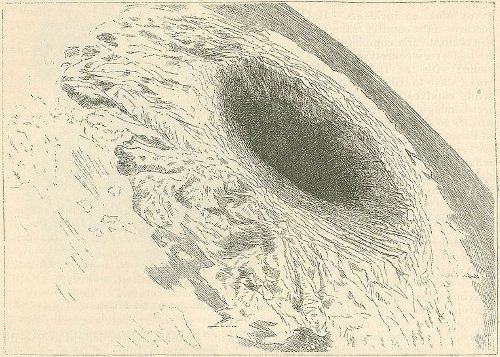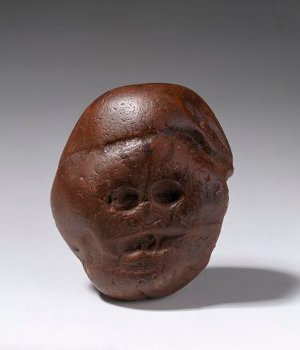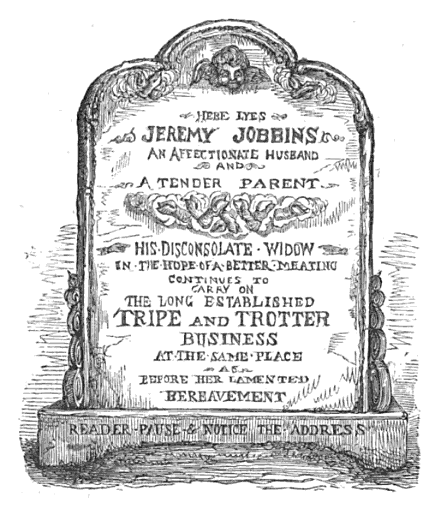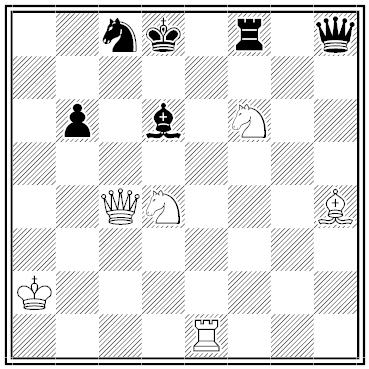“Men are not hang’d for stealing Horses, but that Horses may not be stolen.” — George Savile, Marquess of Halifax
Next Stop …

Until 2007, this unassuming railway station in North Wales went by the name Gorsafawddacha’idraigodanheddogleddollônpenrhynareurdraethceredigion.
This was an attempt to outdo Llanfairpwllgwyngyllgogerychwyrndrobwllllantysiliogogogoch, a village on the island of Anglesey, for the distinction of the longest place name in Europe.
Perhaps because of the apostrophe, the bid was little recognized, and in 2007 the name was reduced, rather drastically, to Golf Halt.
See Succinct.
Inventory
Why would anyone ask a question with 76 spaces, 60 apostrophes, 33 commas, 1 question mark, 2 ‘0’s, 3 ‘1’s, 5 ‘2’s, 14 ‘3’s, 7 ‘4’s, 5 ‘5’s, 5 ‘6’s, 3 ‘7’s, 2 ‘8’s, 3 ‘9’s, 2 ‘W’s, 9 ‘a’s, 3 ‘c’s, 3 ‘d’s, 6 ‘e’s, 4 ‘h’s, 4 ‘i’s, 3 ‘k’s, 2 ‘l’s, 4 ‘m’s, 6 ‘n’s, 8 ‘o’s, 4 ‘p’s, 3 ‘q’s, 3 ‘r’s, 39 ‘s’s, 5 ‘t’s, 4 ‘u’s, 3 ‘w’s, and 3 ‘y’s?
(Thanks, Chris.)
Misc
- Will Rogers died at the northernmost point in the United States.
- 94122 + 23532 = 94122353
- TO BE OR NOT TO BE contains two Bs.
- If you stop me being mute, what sound do I make?
- “Better to ask twice than to lose your way once.” — Danish proverb
Introspection

On April 10, 1818, John Cleves Symmes Jr. of Ohio issued the following challenge:
To All The World. — I declare the earth to be hollow and habitable within; containing a number of concentric spheres, one within the other, and that their poles are open twelve or sixteen degrees. I pledge my life in support of this truth, and am ready to explore the concave, if the world will support and aid me in the undertaking.
I ask one hundred brave companions, well equipped, to start from Siberia, in autumn, with reindeer and sledges, on the ice of the Frozen Sea; I engage we find a warm country and rich land, stocked with thrifty vegetables and animals, if not men, on reaching about sixty-nine miles northward of latitude 82; we will return in the succeeding spring.
Kentucky senator (and future vice president) Richard M. Johnson proposed that Congress fund two vessels for the expedition, but Congress voted this down. But we have an account of the voyage anyway: An anonymous hoaxer published Symzonia: A Voyage of Discovery under Symmes’ name in 1820.
The Makapansgat Pebble

Nearly 3 million years ago, an ancestor of modern humans picked this pebble out of a slow-flowing stream in southern Africa and carried it at least 4 kilometers to a cave, where it was discovered by Wilfred Eizman in 1925.
Why would the creature have done this? Possibly because it recognized a face in the natural markings on the pebble’s surface. If so, this is the earliest evidence of an aesthetic sense in human heritage.
Afoot
Between 1932 and 2002, messages addressed to 221B Baker Street in London were delivered to the Abbey National Building Society, whose headquarters occupied that address. The society received hundreds of letters each year from around the globe and employed a secretary to answer them. Many concerned rather ordinary mysteries (Can Mr. Holmes suggest how a girl might find out if a boy likes her? Mr. Holmes thinks you will have to ask the boy outright), but in 1985 this telegram arrived:
DEAR HOLMES
GLAD TO HAVE CASE – YOUR ASSUMPTIONS WERE RIGHT – JEWELS GONE – STATUE GONE – FORMULA STOLEN – POLICE INCAPABLE – PROF. DR HANS MEIER KIDNAPPED – ME TOO! – WHAT SHALL I DO? – IMPATIENTLY AWAITING FURTHER INSTRUCTIONS.
WATSON
It had been sent from Raunheim, West Germany. No further messages followed.
Life Goes On
A tombstone from “a well-known town in the north, Gateshead,” from Henry Sampson’s History of Advertising From the Earliest Times, 1875:

“Do tripe and trotters after all produce a prosaic condition of the human mind suggested by this tombstone, or would the relict of Jeremy have done as she did had her wares been of a different kind?” asks Sampson. “In the interests of the edibles referred to, for which we must confess a weakness, we trust she would.”
Lit
Eunoia, by the Canadian poet Christian Bök, uses only one vowel per chapter:
Awkward grammar appals a craftsman. A Dada bard as daft as Tzara damns stagnant art and scrawls an alpha (a slapdash arc and a backward zag) that mars all stanzas and jams all ballads (what a scandal). A madcap vandal crafts a small black ankh — a hand-stamp that can stamp a wax pad and at last plant a mark that sparks an ars magna (an abstract art that charts a phrasal anagram). A pagan skald chants a dark saga (a Mahabharata), as a papal cabal blackballs all annals and tracts, all dramas and psalms: Kant and Kafka, Max and Marat. A law as harsh as a fatwa bans all paragraphs that lack an A as a standard hallmark.
Mark Dunn’s 2001 epistolary novel Ella Minnow Pea is set on an island that successively bans letters of the alphabet. Its discourse begins with “Thank you for the lovely postcards” and dwindles to “No, mon, no! Nooooooooo!”
Vladimir Nabokov’s 1938 novel The Gift ends with the main character, a writer, resolving to write a book about his experiences in the novel, thus promoting himself from a character to the author.
In Norman Mailer’s short story “The Notebook,” a writer’s girlfriend accuses him of being only an observer, not a participant in life. This gives him an idea, which he scribbles into his notebook: Writer accused of being observer, not participant in life by girl. Gets idea he must put in notebook. Does so, and brings the quarrel to a head. Girl breaks relationship over this. The girl breaks up with him over this.
The first story in John Barth’s Lost in the Funhouse is a strip of paper: One side bears the words ONCE UPON A TIME THERE, the other WAS A STORY THAT BEGAN. The reader is instructed to cut this out and fashion it into a Möbius strip that reads “Once upon a time there was a story that began ‘Once upon a time there was a story that began “Once upon a time there was a story that began …”‘”
“It’s short on character, it’s short on plot, but above all, it’s short,” Barth told an interviewer. “And it does remind us of the infinite imbeddedness of the narrative impulse in human consciousness.”
In Jean-Louis Bailly’s 1990 novel La Dispersion des cendres, an embittered mystery writer publishes a sensational novel whose cover bears the warning IF YOU BUY THIS BOOK, YOU ARE A MURDERER. IF YOU READ IT, YOU WILL KNOW WHY. When the royalties reach a certain sum, they automatically send into action an assassin who shoots the writer.
Who done it? You did! “As cause and instrument of the murder, fully aware of perpetrating it, the reader — or at least the buyer — is in every sense the guilty party.”
(Thanks, Ole and Harold.)

